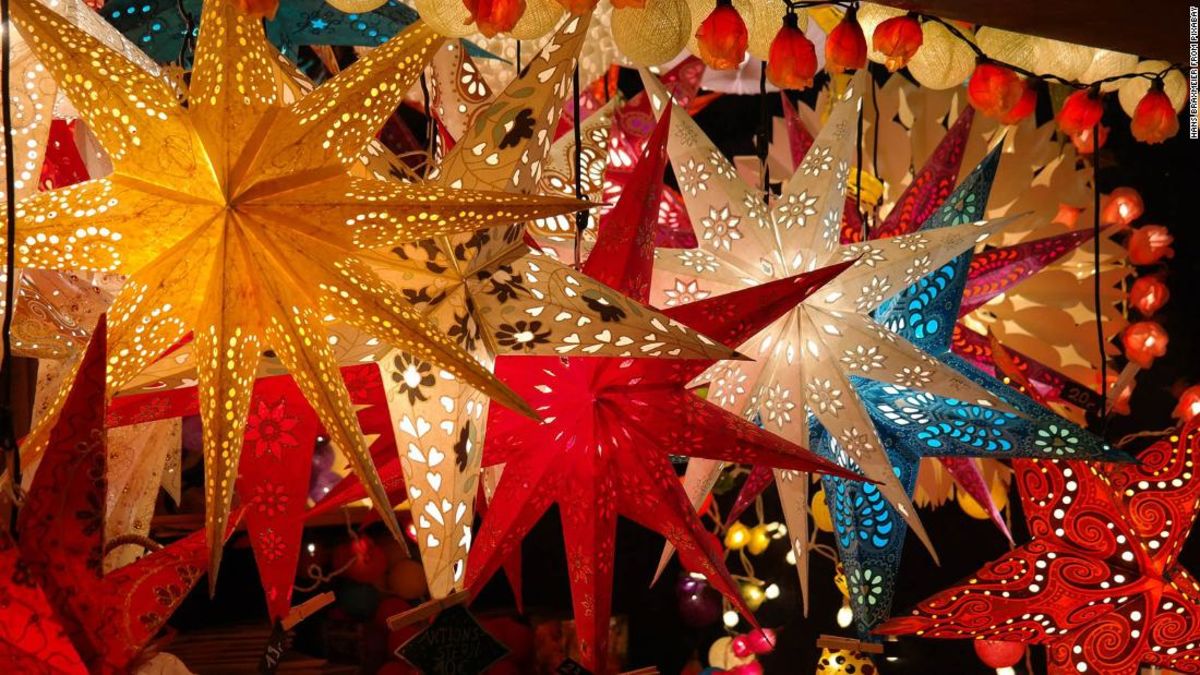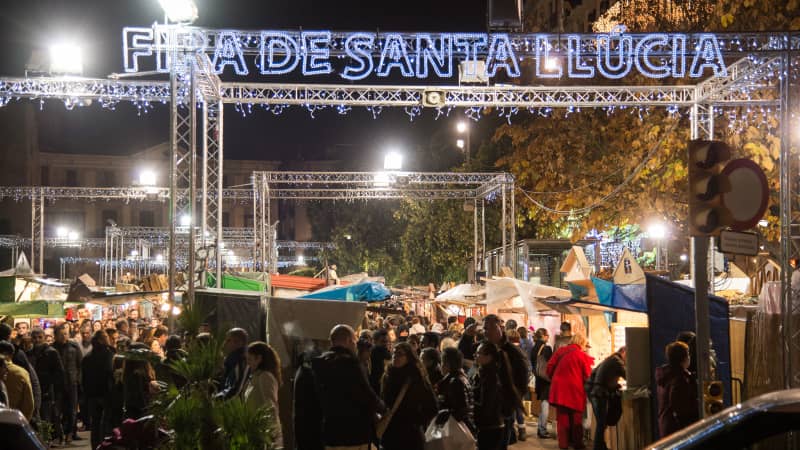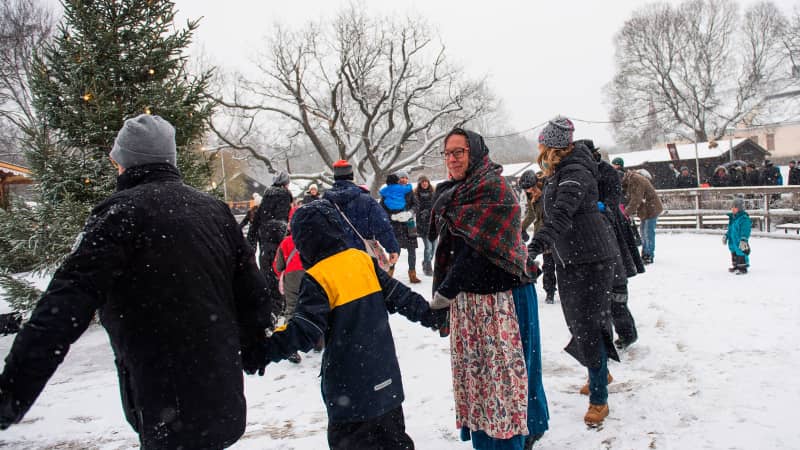Products You May Like
Strasbourg, France
Today there are 10 locations with 300 stalls, meaning it’s easy to spend the best part of a week here indulging in end-of-year festivities, picking up decorations and presents and drinking local Alsatian wine.
What makes it special: Strasbourg is just across the border from Germany, so you get a two-cultures-in-one experience.
Viennese Christmas Market, Vienna, Austria
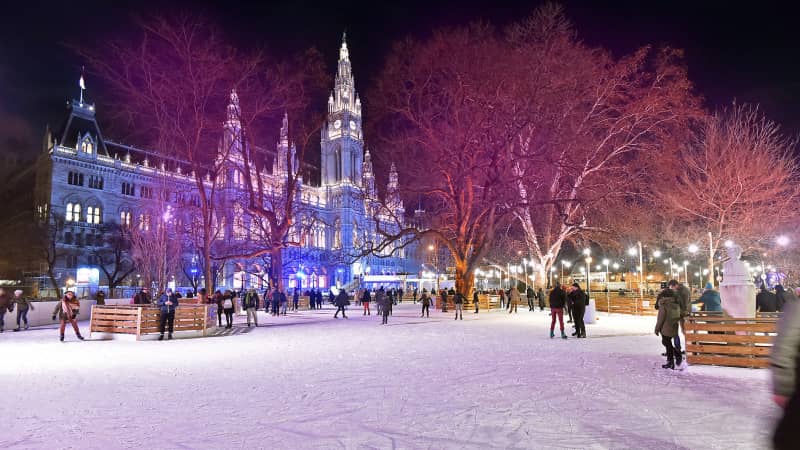
Christmas on ice: A huge skating rink is part of the attraction of Vienna’s Christmas Market.
courtesy Stadtweinmarketing
Few cities steep themselves in the festive spirit like Vienna. The Austrian capital’s first Christmas Market was held in 1298 and today the city has more than 20 events to choose from.
First timers, though, should make a beeline for the Viennese Christmas Market, which takes place in front of City Hall (Rathaus).
With around 151 stalls serving everything from boozy Christmas punch to gut busting Austrian sausages, the market also boasts a huge ice rink for skating, reindeer rides for kids and a classic nativity scene.
This year’s event will run from November 16 to December 24.
What makes it special: This might be the most traditional Christmas market going, but be sure to try out curling on the dedicated ice rink. A bizarre and brilliant winter sport to keep off the chill.
Toronto Christmas Market, Toronto, Canada
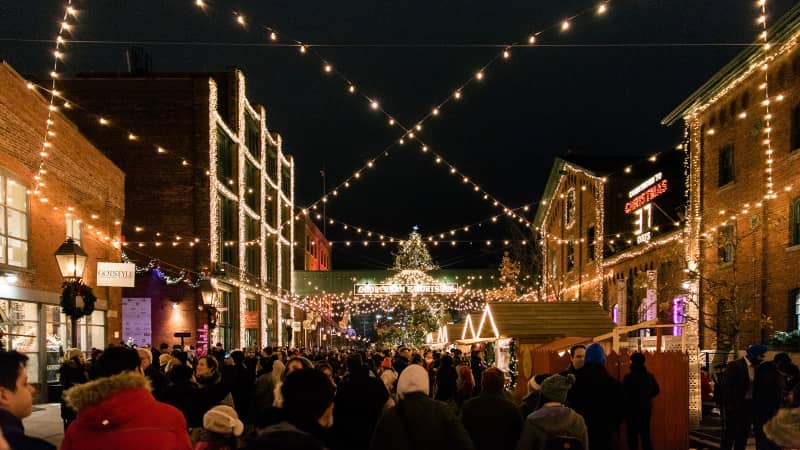
Toronto Christmas Market is held in the pedestrian-only Distillery District.
Toronto Christmas Market
Now in its 10th year, Toronto’s annual Christmas market is one of the biggest in North America.
Based in the city’s historic Distillery District, it’s an enchanting scene, with glittering lights, a Santa’s Grotto, fairground rides, beer gardens and holiday vendors selling everything from poutine to one-off Christmas gifts.
The market, which is usually closed on Mondays, also offers up plenty of entertainment, which numerous music performances taking place on a daily basis, including brass bands and carolers.
Its center piece is a dazzling 50-foot Christmas tree.
What makes it special: For the last few years, a 100-foot long light tunnel has been erected at the market, adding even more magic to the festivities.
Old Town Square and Wenceslas Square, Prague, Czech Republic
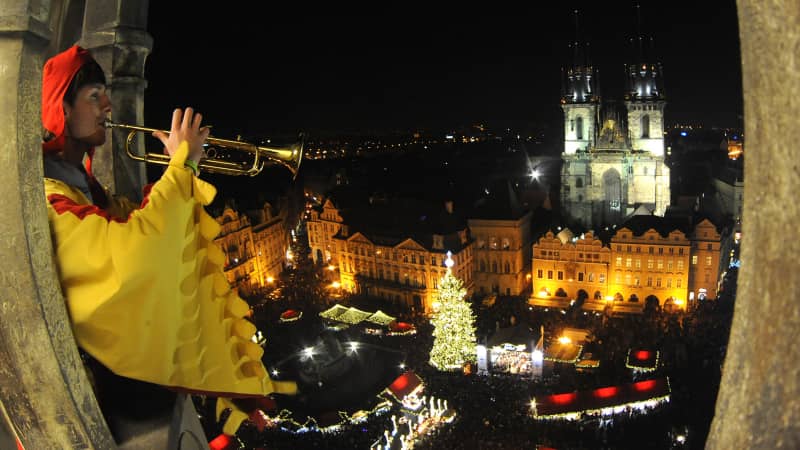
Prague’s Xmas market opens every day — including Christmas Day — until January 6.
MICHAL CIZEK/AFP/AFP/Getty Images
No city lends itself to Christmas better than Prague.
The city’s two main Christmas markets, in Old Town Square and Wenceslas Square, are only five minutes’ walk from each other, so can both easily be explored in one day. Each one has the usual wooden huts found in similar markets across Europe, but the Czech treats are what really set them apart.
Visitors can grab a klobása (Czech sausage) and wash it down with a Pilsner Urquell in the afternoon, then hang around for the main tree to be lit up on Old Town Square.
What makes it special: The Czechs don’t do half measures at Christmas time. Both markets are open every day from November 30 until January 6, including Christmas Day.
Piazza Santa Croce, Florence, Italy
With the Franciscan Basilica providing a backdrop for the 50 stalls, this is the perfect place to pick up stocking fillers and treats without the unerring sense of dread that accompanies the average shopping street in the run up to December 25.
For added yuletide vibe, it’s good to head to Piazza del Duomo for the nativity scene and Christmas tree, which is lit up on December 8, as part of the Feast of the Immaculate Conception.
What makes it special: Although this is every inch an Italian event, there’s a distinct German air to the proceedings too. Keep an eye out for gingerbread and strudel.
Krakow, Poland
For anyone dreaming of a white Christmas, Krakow usually delivers.
The city’s Christmas market, held in Rynek Glowny, the city’s huge main square, typically gets a heavy dusting of snow during December, making a visit here even more magical than some of the big name markets in western Europe.
Hand-painted Christmas baubles are a local specialty, as are spiced nuts and boiled candies. Krakow’s 2019 Christmas market is on from November 29 to January 7.
What makes it special: This is a more all-round Christmas shopping experience, so it’s worth trawling the stalls for cheap antiques and weird and wonderful bric-a-brac.
Frankfurt Christmas Market, Birmingham, UK
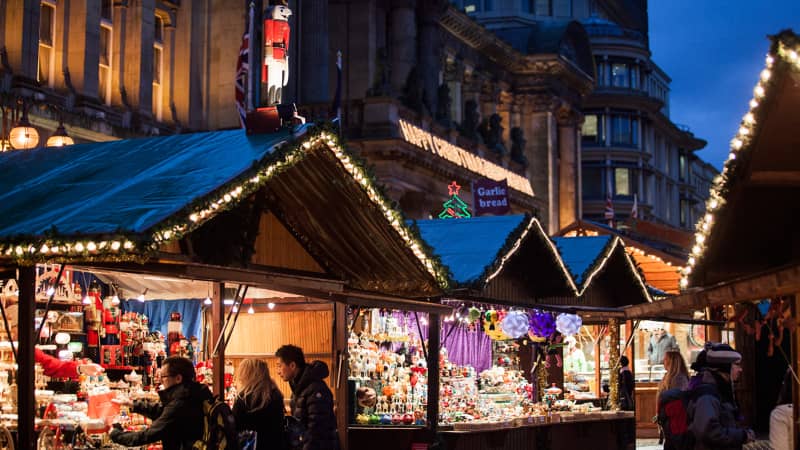
Birmingham: Home of Chris Moose.
courtesy Birmingham Toolkit
England’s second city isn’t the first place you’d expect to find a traditional Christmas Market. But buzzing Birmingham boasts “the largest authentic German Christmas Market outside of Germany or Austria.”
Held in Victoria Square from November 7 to December 23, Birmingham emulates its continental rivals with over 80 stalls selling everything from jewelry to handmade toys.
What makes it special: The neighboring Christmas Craft Market, in Centenary Square, has about 30 stalls selling local beers, British sausages and work by local artisans.
Tivoli Gardens, Copenhagen, Denmark
Copenhagen’s Tivoli, with its fairground rides and warren of shops and stalls, is a year-round destination in its own right. But it’s during December that this Danish institution really comes into its own.
As well as the usual stands selling Christmas decorations and nibbles, there are three different light shows which take place in the park, as well as a traditional Pixie Band playing festive songs at various points around the site.
December 13 sees the annual Lucia procession, with 100 girls passing through the gardens carrying candles and singing to mark St Lucia’s Day. Christmas in Tivoli Gardens 2019 runs from November 16 to January 5.
What makes it special: Firework displays are held in the Tivoli Gardens between December 25 and 26 and again on December 31.
Gendarmenmarkt, Berlin, Germany
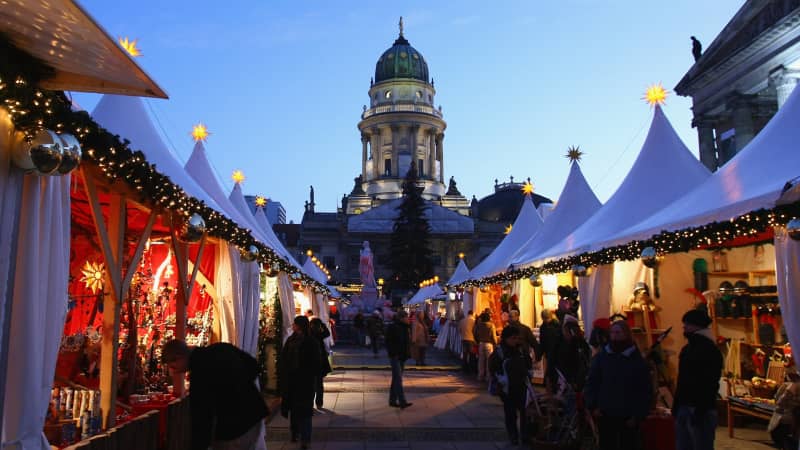
Berlin: Christmas market added architectural backdrop.
Sean Gallup/Getty Images Europe/Getty Images
Berlin is a hugely popular destination during the festive season thanks to its Christmas markets.
The city has worked hard to renew its seasonal appeal in recent years after a terror attack at the Breitscheidplatz market in 2016 led to the temporary closure of many other markets in the capital.
While you could visit a different Berlin market for all 12 days of Christmas, if there’s only time for one, our pick is Gendarmenmarkt.
The imposing architecture of the Deutscher Dom and Französischer Dom loom over classic wooden huts where visitors can steel themselves before shopping with delicious sausages and warming cups of mulled wine.
Once fortified, vast crafts tents await where everything from original paintings to wood carvings can be found for sale. For off-kilter Christmas presents, it’s a struggle to match this gem.
What makes it special: Come for the first-rate shopping, but make sure to stick around for the nightly concerts, ranging from choral to jazz. No out-of-tune carols here.
Winter Wonders, Brussels, Belgium
Brussels’s Winter Wonders is more of a festival than a Christmas Market, although there’s more than 200 chalets serving up festive fixes of glühwein, Belgian beers and waffles.
The event is spread out across the Bourse, Place de la Monnaie, Grand Place, Place Sainte Catherine and Marche aux Poissons, with ice skating, a Ferris wheel, light shows and, of course, a huge Christmas tree.
Running from November 29 until January 5, it adds to the Belgian capital’s chocolate box feel.
What makes it special: There are guided tours in English for those who don’t know where to begin. Just make sure to warm up with a hot chocolate first.
Fira de Santa Llúcia, Barcelona, Spain
Positioned in front of Barcelona Cathedral, the market features around 300 stalls selling everything from Christmas decorations, trees and nativity figurines to musical instruments, handmade puppets and jewelry.
The festivities usually begin in late November, running until around Christmas Eve.
What makes it special: The caga tio — an enormous piñata-style Christmas log which spills out candy and gifts when beaten with a stick — is one of the most popular Fira de Santa Llúcia activities.
Budapest Christmas Fair and Winter Festival, Hungary
The Budapest Christmas Fair and Winter Festival takes place at Vörösmarty Square in the center of the city from early November to the end of December each year. It’s the oldest festive market in the Hungarian capital as well as the most popular.
You can pick up anything from Christmas-themed gifts to traditional Hungarian food to mulled wine from the 100 plus stands on display. There’s also plenty of entertainment in the form of light shows, folk dancing and live music.
What makes it special: The exterior of the famous Gerbeaud Coffee House on Vörösmarty Square is converted into a giant advent calendar, with a new magical window display opening every day from December 1 to 23.
Skansen’s Christmas Market, Stockholm, Sweden
Located in Skansen, an open-air museum on the island of Djurgarden in the heart of Stockholm, this Christmas market is about as traditional as it gets.
Held every weekend from late November to mid December, its bustling with stalls selling Swedish handicrafts, traditional sausages, spices, smoked turkey and candles.
There are regular craft demonstrations as well as dancing games around the Christmas tree. You can also make your own decorations at a Christmas workshop.
What makes it special: Skansen is also home to a small zoo with Nordic animals, so you can combine your Christmas market shopping with some reindeer spotting.
Advent in Zagreb, Croatia
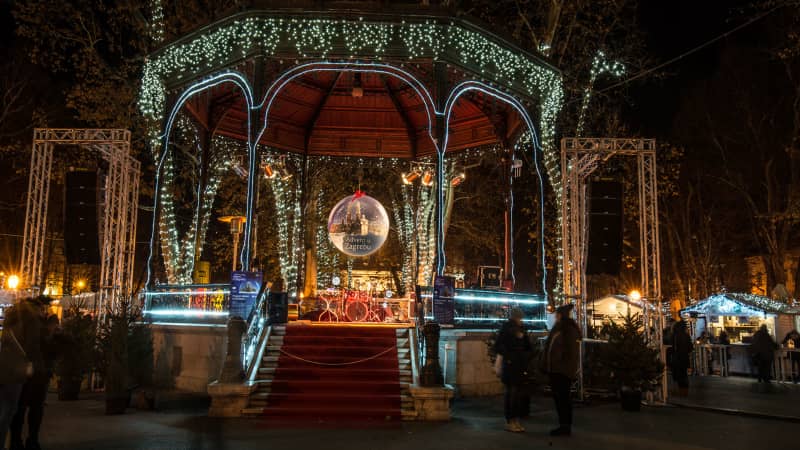
Advent in Zagreb has been voted the most popular Christmas market destination.
Courtesy Roman Avdagić / Flickr, Creative Commons
Advent in Zagreb has been voted the “best Christmas market destination” by users of travel portal European Best Destinations for two years running. Based on the streets surrounding Jelacic Square, the numerous attractions on offer include an ice rink, live ice sculpture carvings, pop-up bars, street food stands and outdoor music stages.
There’s even an area dedicated to “fooling around”( or “fuliranje” where revelers can dance in the street and eat and drink to their heart’s content. This year’s event runs from November 30 to January 7.
What makes it special:
The Jolly Christmas Tram is tough to beat. Here kids (and big kids) can cruise through the city center accompanied by Santa and his elves.
Bank of America Winter Village at Bryant Park, New York
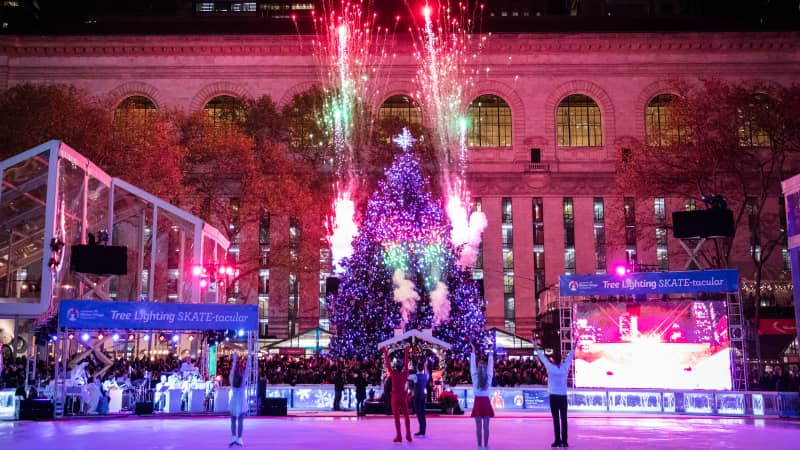
Bank of America Winter Village at Bryant Park features a free ice skating rink.
Elizabeth Shrier Photography
This European-style open-air market in Bryant Park is one of the most well-known Christmas markets in New York. With around 125 custom-designed kiosks featuring jewelry and handicraft from all over the world, there’s plenty to keep visitors occupied.
Its park location means there are added bonuses like the impressive Josephine Shaw Lowell Fountain, which often freezes over in the winter, and the Le Carrousel, where riders are likely to be joined by Santa and his elves. The Winter Village opens on October 31.
What makes it special: Bryant Park’s 17,000-square-foot outdoor rink is New York’s only free ice skating rink (although there’s a charge to hire skates).
Tallinn Christmas Market, Estonia
Estonia’s capital goes all out at Christmas time, with this revered Christmas market at the center of the action.
Held each year in Tallinn’s Town Hall Square, it boasts rows of huts, where you can pick up traditional Estonian cuisine and handmade gifts.
There’s also a winter grotto to visit as well as performances by choirs, poets and dance troupes.
What makes it special: The main highlight here is the Christmas tree, which has been set up in the Town Hall Square since 1441 and was one of the first to be displayed in Europe.
Basel Christmas Market, Switzerland
This year’s official opening will take place at Münsterplatz on November 28, with Swiss politician Elisabeth Ackermann switching on the Christmas lights.
Consists of around 180 meticulously decorated stalls selling culinary delights and goods, the market is open until December 23.
What makes it special: Münsterplatz’s Christmas fairytale forest provides great activities for kids such as gingerbread decorating and Christmas decoration making.
